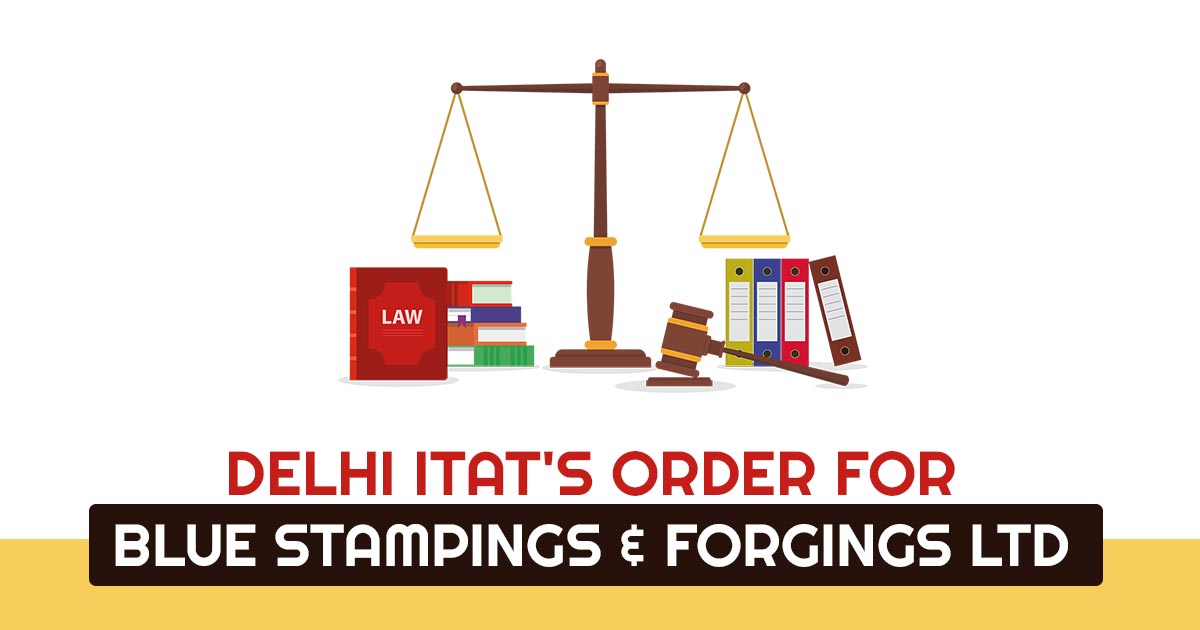
According to the Delhi Bench of the Income Tax Appellate Tribunal (ITAT), the assessing officer was not justified in taking severe measures and rejecting audited books of accounts based only on general observations that photocopies of the bills had been supplied in place of the original bills.
Anubhav Sharma, a judge, and Pradip Kumar Khedia, an accountant, made up the two-person bench. They noted that a little change in the net profit ratio by itself cannot justify taking harsh measures like rejecting the audited accounts in isolation.
The appellant/assessee produces rough iron forgings and machines auto components as a line of business. A survey was conducted, and the assessee provided some disclosures. For the relevant assessment year 2013–14, the assessee submitted a return of income declaring Rs. 2,78,37,670, which was subject to scrutiny assessment.
Due to a reduced net profit percentage, the Assessing Officer added specific amounts while determining the assessment by using Section 145(3). Subsequently, the amount of the addition was changed in accordance with Section 154, and ultimately, an addition was kept since the net profit was reported at a lower level.
The assessee appealed the Assessing Officer’s decision to CIT (A). The CIT(A) dismissed the assessor’s books and found no justification for dismissing the assessee’s argument. The CIT(A) confirmed the additions made as a result of the poor net profit.
The assessee claimed that the additions made in response to the little decrease in net profit in question were entire without foundation and were only justified on tenuous grounds. Without pointing out any flaws in the audited books of account, the Assessing Officer used the requirements of Section 145(3) and rejected the books of account.
The Assessing Officer used Section 145(3) due to the assessee’s claimed net profit rate of 6.15%, which is lower than the 6.52% net profit concealed in the previous year, and the production of photocopies of expenditure vouchers rather than original bills.
The assessee argued that there was no reason to question the accuracy of the books just because some of the invoices given to the Assessing Officer were photocopies, notwithstanding concrete evidence such as the existence of audited accounts and transactions. The net profit ratio has not significantly changed, and on a comparable basis, the gross profit ratio is larger than it was in the prior year.
Read Also: ITAT Deletes INR 1 Lakh Penalty of Proper ITR Filing & Audit Report
The department said that it was the assessee’s responsibility to provide the supporting documentation in original form to attest to the veracity of the books of accounts. In the absence of a release of responsibility from the assessee, the Assessing Officer was justified in moving forward with anticipated additions under Section 145(3).
The tribunal observed that the Assessing Officer in the current instance has not demonstrated how the assessee’s audited books of account are inaccurate or otherwise lacking, which is likely to taint the assessee’s genuine earnings.
“No specific instance has been provided in order to appreciate how much delinquency on the part of the assessee has resulted in the unreliability of books per se. Admittedly, the photocopies of bills and vouchers were duly produced, but the Assessing Officer has not made any independent inquiry on the correctness of the bills from third parties,” the court said.
| Case Title | Blue Stampings & Forgings Ltd Vs. Dy. Commissioner of Income Tax |
| Citation | I.T.A No.1155/DEL/2020 |
| Date | 23.01.2023 |
| Appellant by | Shri K.C. Singhal, Adv |
| Respondent by | Shri P. Praveen Sidharth, CIT-DR |
| Delhi ITAT Order | Read Order |








